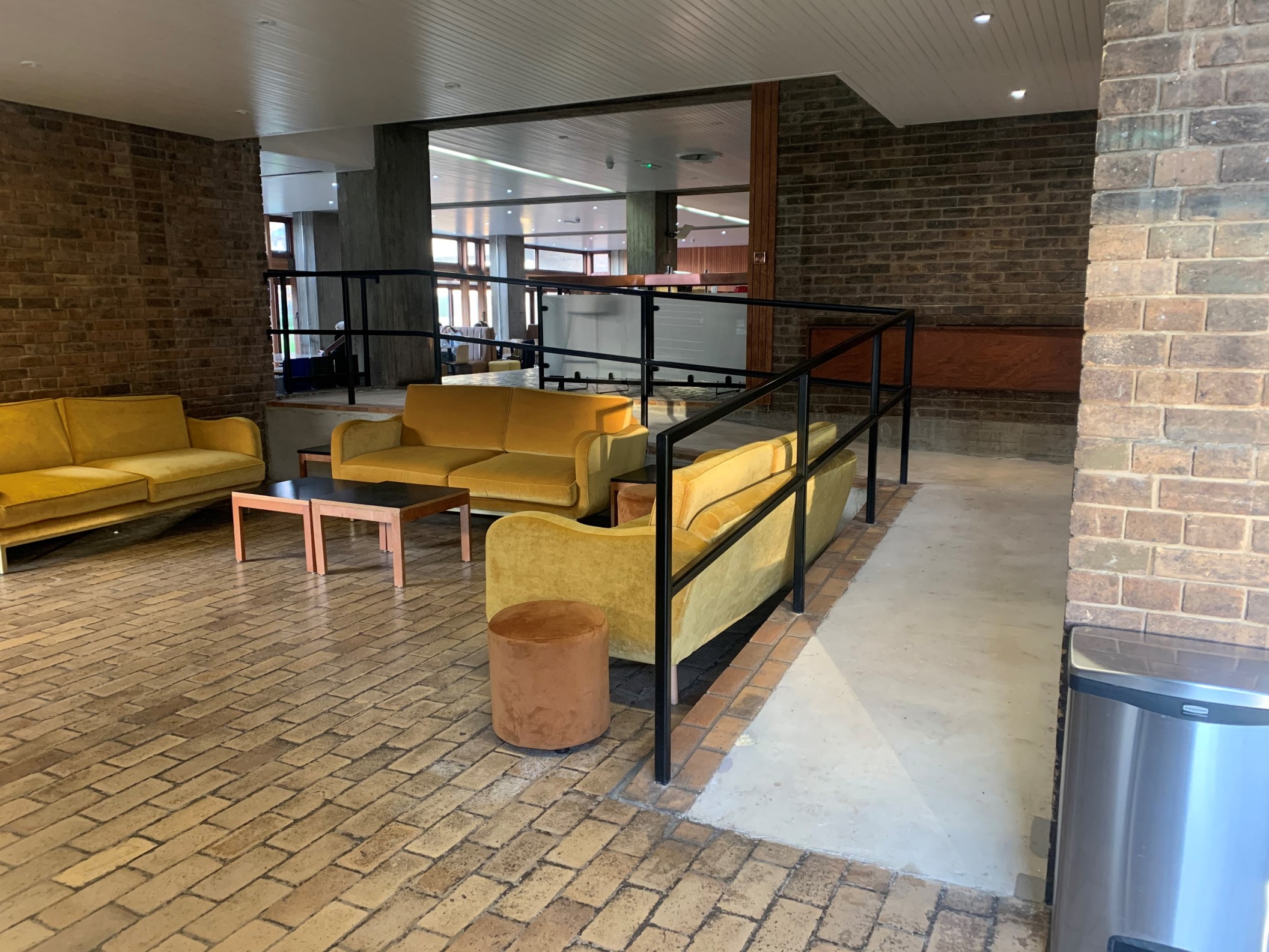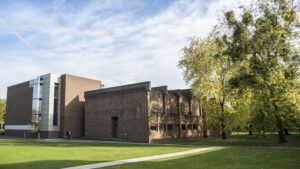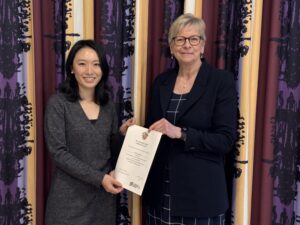Tom Boden joined Churchill College as Head of Estates in late 2019 and rapidly got to work with his team on a full accessibility audit which looked at the College in a fresh and completely holistic way.
There had always been an assumption that whilst improvements still needed to be made, as a relatively new College Churchill performed relatively well in comparison with medieval colleges when it came to physical access. However, the audit identified some additional challenges around accessibility for those with sensory challenges. As well as considering physical accessibility needs for those with physical disabilities, attention was also focused on how the College could help people with sensory challenges, such as the challenges presented to people with autism, particularly in an auditory capacity.
Inclusivity sits at the heart of everything we do, and because accessibility is so tied up in inclusivity it’s vital that we get it right. To ensure we are as inclusive as possible, we must make sure that everybody is able to access and enjoy not just our buildings, but our events and our facilities and our social spaces. We must achieve the gold standard in all areas of our buildings and facilities, in all aspects of accessibility.
To ensure all voices were heard and considered, Tom and his team engaged directly with the College’s undergraduate and postgraduate accessibility officers, as well as looking further afield to capture specialised input and expertise. The nearby University of Cambridge primary school in Eddington was specifically designed to consider sensory as well as physical access challenges and the audit team were able to learn from their experience of how best to manage noise issues on a busy site. They were surprised to find that the spaces on the primary school site were very open but on closer observation, they could see that the design always ensured that quiet spaces were placed near the loud spaces. These quieter spaces were not placed behind closed doors, but tucked slightly away, providing a space for two minutes of reprieve.
With the audit in place, Tom and his team started by addressing some of the most obvious accessibility problems which included improving physical access to the College’s main social space, the buttery. This was achieved by removing the raised section of the buttery and installing a ramp to the bar to ensure everyone could use and enjoy the College’s core social space, regardless of whether or not they could handle stairs. This approach set the tone for the next raft of improvements including the introduction of handrails and improvements to ramps across the site, and a major decision to create the perimeter path – a new multi-purpose surface track running around the whole site. The introduction of the perimeter path has created a fully accessible 700m circuit through the extensive College grounds and gardens which can now be enjoyed by all visitors and College members throughout the year.
Most recently, the College opened a ‘Changing Places’ toilet, one of only four in Cambridge and the only one known to be in a Cambridge college. Changing Places is a charity that started with a campaign to improve changing rooms and bathrooms for those unable to access standard accessible toilets. Standard accessible toilets (or “disabled toilets”) do not provide changing benches or hoists and most are too small to accommodate more than one person. Without Changing Places toilets, the person with disabilities is put at risk, and their carers are forced to risk their own health and safety by changing those they care for on a toilet floor which is dangerous, unhygienic and undignified.
Providing Changing Places toilets in public places makes a dramatic difference to the lives of thousands of people who desperately need these facilities and whilst it’s now law for certain new public spaces or buildings, they are not a statutory requirement for existing buildings.
Even though the College was not legally obliged to have a Changing Places toilet, Tom and his team are proud to have set this gold standard of inclusivity to ensure that visiting members of the public and the College community feel welcome when they come into the space and can enjoy it. With the Changing Spaces toilet now open, Tom and his team are now focused on what is probably the most challenging aspect of accessibility at Churchill – making sure the College’s social spaces are welcoming for those with sensory access needs, as Tom explains:
We’ve got these fantastic huge social spaces, like the dining hall and the buttery, but that means it’s very loud and that can be a real challenge for many of our community and people coming in from the outside. So that’s why our current project is looking at how we can handle noise particularly, but also how we can create spaces nearby that people can just take a couple of minutes in if they need a little bit of a reprieve. I think that’s one of the key things we need to try and achieve, and it’s not something people necessarily associate with accessibility, but is actually a key pillar of it.
Join John Moore, Head of Grounds & Gardens, for a tour of the new perimeter path:




